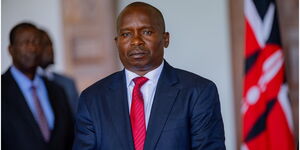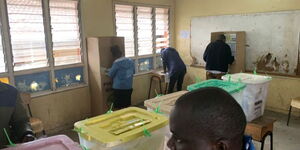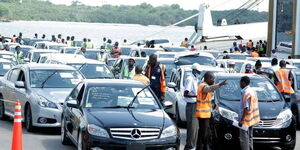Treasury Cabinet Secretary John Mbadi has announced that the government can no longer afford to provide free primary and secondary education.
Appearing before the National Assembly committee on July 24, the CS claimed that free basic education was no longer sustainable, citing the increased number of students in schools and constrained fiscal resources.
He also said that the capitation grant for secondary schools would now be Ksh16,900 per child, down from Ksh22,244.
"Currently, learners are provided with tuition and operations costs at the rate of Ksh1,420 for primary education. For junior school, it is Ksh15,042 per child, and in senior secondary school, it is Ksh22,244 per child," he stated.
"However, due to constrained fiscal space and other emerging priorities within the education sector, updating these rates might be untenable. The government will, however, consider reviewing this rate should revenue performance improve."
Exam Fees
Mbadi also broached the subject of national exam payments, revealing that the government was considering having students pay registration fees for national exams.
Backing these assertions was the Education CS, Julius Ogamba, who also believed that the increasing number of school enrolments played a part
"This particular figure for the past four or five years has never been attained in the budgeting of the money that comes to the ministry, and that is because the number of students has been going up, but the figure has remained static," Ogamba said.
"Administratively, the ministry has taken steps to ensure the timely disbursement of capitation at the ratio of 50:30:20, for the first term, second term and third term."
While reading the budget estimates for the 2025/2026 fiscal year last month, CS Mbadi announced that education would be getting Ksh702.7 billion of the Ksh4.29 trillion budget.
“The education sector plays a vital role in economic development by enhancing human capital, driving innovation, and improving productivity," he stated.
"To this end, the government continues to invest in education to raise learning outcomes and ensure equal opportunity for all. I have proposed a total of Ksh702.7 billion to the education sector, which is almost 28 per cent of our entire budget."
Of this, Ksh7 billion was earmarked for free primary education, while Ksh51.9 billion was allocated to free secondary day schools.
Junior secondary schools would receive Ksh28.9 billion, while Ksh4 billion was to be allocated to Technical Vocational Education and Training (TVET) institutes.
An allocation of Ksh5.9 billion was made to cater for the administration of the national examinations, and another Ksh3 billion for the school feeding programme.












